 Abraham Lincoln
If given the truth, the people can be depended upon to meet any national crisis...
Abraham Lincoln
If given the truth, the people can be depended upon to meet any national crisis...
 Guildford news...
for Guildford people, brought to you by Guildford reporters - Guildford's own news service
Guildford news...
for Guildford people, brought to you by Guildford reporters - Guildford's own news service
D-Day 75 Years On: Huge Military Presence, Then They Were Gone…
Published on: 6 Jun, 2019
Updated on: 6 Jun, 2019
By David Rose
Anyone with the slightest interest in Britain’s history will know 75 years ago today (June 6) the D-Day landings took place – the Allied invasion of Normandy with the aim of liberating mainland Europe from Nazi Germany.
This week has already seen national and international commemorations taking place and today will be no exception. But what was happening in and around Guildford and other parts of Surrey 75 years ago as the Allies made plans for Operation Neptune, the official codename of what was to be the largest seaboard invasion in history and the beginning of the overall invasion codenamed Operation Overlord.
Thousands of British, Canadian and US soldiers took part in landings on beaches codenamed Utah, Omaha, Gold, Juno and Sword, as well as from the air. In the build-up to D-Day itself, military activity was intensified. The countryside of southern England was turned into a huge military camp and training ground.
When, as a child, I began pestering my parents about their memories of the Second World War, D-Day was often spoken about. My mum and dad hadn’t met and married at that time and both were working at factories making munitions – Dennis Bros in Guildford and Nelco in Shalford, respectively.
They, and others I have in spoken to or corresponded with over a number of years, have remarked on the strange silence that was all around once D-Day came and the troops, vehicles and equipment that had been mounting up, suddenly moved off.
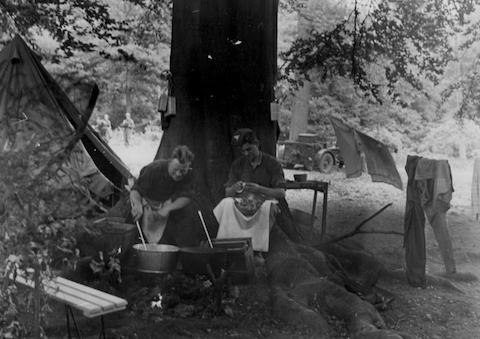
Canadian troops camped in woodland in the Surrey Hills. From the book Guildford The War Years 1939-45 by Graham Collyer and David Rose.
As June 1944 approached lines of vehicles covered with camouflage netting were parked along the major roads, and ammunition and supplies were stored in dumps deep in the wooded North Downs as the final plans for the great invasion were being prepared.
There are remains today of the concrete roads in the woods on the North Downs to the east of Newlands Corner, off Coumbe Lane, believed to have been laid by Canadian troops when camped there throughout the war.
The book Guildford The War Years 1939-45, I co-wrote with Graham Collyer (Breedon Books 1999), included people’s memories of the Second World War. Of D-Day one person recalled: “For days before D-Day we had been surprised by the amount of troop movement past our house on the main road to the coast.
“One day, Churchill tanks trundled nose-to-tail from dawn to dusk. It was almost impossible to cross the road, and they did the kerbs no good at all. Our dancing class in Shalford’s Free Church hall had to be called off, to the boys’ delight, as the teacher couldn’t be heard for the noise.”
The railway lines in and out of Guildford played an important part in the build-up to D-Day. Therefore, when two trains collided at Shalford station in the early hours of April 11, 1944, setting alight a number of fuels wagons, it couldn’t have come at a more unfortunate time.
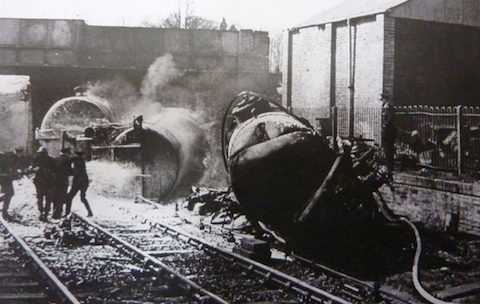
The tanker train incident at Shalford station, April 11, 1944. These pictures were reproduced in the book Guildford The War Years 1939-45 courtesy of the now late Ron Shettle, a former Surrey fireman, who originally researched the story.
A train of 25 wagons full of aviation fuel en route to Wye in Kent collied with another goods train near the road bridge at the entrance to the station. A number of derailed wagons blocked the line and as petrol leaked from them a huge blaze erupted.
Firefighters confined the blaze to the first four wagons as most of the leaking petrol ran into a culvert that took it away to a nearby stream.
However, flames from the burning petrol came above the ground through vents spaced at intervals along the line, causing a number of explosions.
At one point flames shot 50 feet into the air and it was feared that the blistering heat would ignite a 60,000 gallon petrol store in the station yard.
There was more drama after the fire had been put out and work had begun to clear the line. Workmen using oxyacetylene cutting equipment on the damaged track caused a second blaze igniting petrol vapours.
Leading fireman Bob Velde suffered first-degree burns and company officer H. V. Bentley was slightly burned on the left hand. But the gallant work of the fire crews resulted in saving all but 10% of the high octane spirit destined to be used by the RAF.

The heat of the fire buckled the side of the bridge over the railway line. The effects can still be seen. Picture: David Rose.
Also ahead of the Normandy landings, on Hankley Common, between Elstead and Thursley, a 100m long, 3m high and 3.5m wide concrete structure had been built by Canadian troops. It was a small replica of the giant Atlantic Wall, an extensive system of coastal defence and fortifications built by Nazi Germany between 1942 and 1944.
The replica, parts of which remain to this day, was used as a training aid to develop and practise techniques by the Allies of breaching the French coast defences.

A memorial cairn on Albury Heath by the cricket pitch records Mongomery’s speech to 1,000 troops in May 1944.
In May 1944 Field Marshall Bernard Montgomery, commander of the Allied land forces during Operation Overlord, addressed more than 1,000 soldiers on Albury Heath. A memorial cairn records the event.
He told them they would be under his command for the second front. In his rallying speech he encouraged the men that they could win the war that year, the war that he admitted he was so tired of.
The Surrey History Centre’s website notes in reference to reinforcements after the initial landings: “Among these was the 131st (Queen’s) Brigade, which was composed of the 1/5th, 1/6th and 1/7th Battalions, Queen’s Royal (West Surrey) Regiment.
“The Brigade was stationed in Essex and embarked at Southend on June 6. According to the War Diary of the 1/5th Battalion, ‘slight enemy shell fire was encountered causing no damage, escort laying an effective smoke screen’. This shell fire probably came from the Pas de Calais, which had been heavily fortified since the Germans believed the invasion would be there rather than Normandy.
“It was not until June 8 (D-Day +2) that the 131st Brigade finally landed in Normandy.”
I do not know how many men from the Guildford area took part in the D-Day landings whether in the army, navy or air force. However, one was Ralph Brewser.
He was Dragon News reader Sheila Atkinson’s uncle by marriage and she says: “He landed on Sword beach. His home address at the time was Masons Row, which was a row of cottages at the back of today’s auction house in Millmead.
“Ralph spent his 21st birthday in August 1944 somewhere in France, I believe.
“He did his apprenticeship at Biddles before moving to the Surrey Advertiser in the early 1960s, and passed away in 2002.”
Following the great invasion, wounded troops were brought back to Southampton, Gosport or Portsmouth before being transferred to hospitals around the country. The former site of the Guildford Union Workhouse in Warren Road, with its infirmary (and later to become St Luke’s Hospital) was utilised to treat troops. Botley’s War Hospital at Chertsey, now St Peter’s Hospital was also used.
In Jacobs Well, on the corner of Clay Lane and Queenhythe Road, is the Lilly Bell II memorial, commemorating the four US airmen who died on October 25, 1944 when their USAAF transport aircraft “Lilly Bell II” crashed in the field opposite. The co-pilot was Flight Officer John Wright.
The full story of Lilly Bell II can be read here.

The Wright family from the USA at the unveiling of the Lilly Bell II memorial at Jacobs Well in October 2010.
Previously, as a glider co-pilot, John Wright flew a reinforcement glider flight carrying infantrymen and mortar bombs on the morning of June 7, 1944 with the 434th TCG based at Aldermaston to which he had been temporarily transferred.
The 434th TCG towed 50 Waco CG-4A gliders containing men from the 325th Glider Infantry Regiment, glider artillery and engineers to reinforce the 82nd Airborne Division in Normandy as part of Mission “Galveston”.
In military historian Frank Phillipson’s research into the Lilly Bell II crash and subsequent contact with the son of Flight Officer John Wright (also John) and his family, they kindly supplied copies of letters the airmen wrote to his wife and family during the war. Here is an extract of one in which he describes that flight on June 7 (D-Day + 1). Take your time to read it – it’s well worth it!
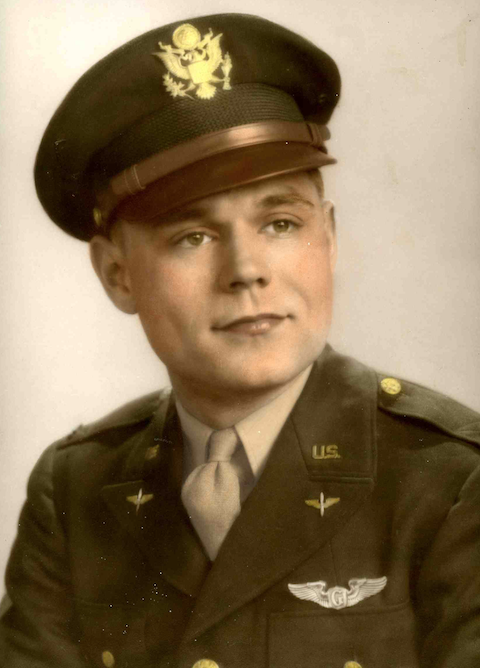
Flight Officer John Wright co-piloted a glider landing troops and mortar bombs on D-Day + 1, June 7, 1944. Shortly after he wrote down his experiences for his family to read.
“D-Day we spent making final checks, briefings as to our landing zones, study of our fields, checking of equipment. We watched glider formations making and taking off and wondering how it was all going.
“That night wrote you one of those letters and then tried to get some sleep between 9:00 and 12:00. By 00:50 a.m. of D-Day+1 (7th June) we were out where our gliders were being marshaled. We supervised this.
“About 2:30am went back to get some coffee and doughnuts and by 3:30am were back at our glider, and at this time our passengers were loaded. At 3:45am were again briefed – routing change because of anti-aircraft fire and hence our approach to our LZ (Landing Zone) would all be different and due to this change, because of technicalities, we probably couldn’t use the fields we had previously picked and studied from our aerial photos.
“At 4:50am roughly, we took off and started forming. I can’t say I was actually scared at this time but I was all tense inside. It was dark, but before we had completed forming and were on course, it was beginning to become light. The sky was beautiful, the air a little bumpy but nice.
“It didn’t seem like the real thing – just like night flying back in Lubbock and I could easily have imagined landing and going home to my honey and baby for breakfast and then sack time – with my honey. I remarked to Van that I still couldn’t believe people right ahead were shooting and meant business.
“The sea was calm and saw a few ships but not nearly like what I thought an invasion force or its supply force would look like. We were not on the proper course for this. A ways out we saw our Maxton tug ships skimming the water back, and a little later our fighter escort started cutting up around us.
“By this time it was quite light and there was a beautiful sunrise. It was going on 7:00am when we saw the shores of France, and so I took over flying so Van could look over the field and plan what he would do. We had taken turns on the way and had some severe prop wash, but it never lasted more than a few minutes.
“As we came over the beach I could see nothing, no ships or men, only smoke here and there just off-shore. The only thing in view were 4 C-47s ditched (and in apparent good shape) on the beach. I glanced out the corner of my eye on the terrain, and it was a shock to see huge trees around these so very small fields. I thought to myself this terrain had better begin to get better or else. It was a matter of seconds, and when I turned my full attention to the formation ahead, I couldn’t believe my eyes when I saw gliders in free flight and our tow ship climbing to get the proper altitude for our release.
“We came in low and were to be up for our release. I knew from briefing where we were supposed to go, and this was not it by any means. Van hollered, ‘I got it’ and looked at me with a foolish grin (which I will always remember) as if to say, ‘This is it brother’.
He looked at me about three seconds with that foolish grin, cut, and then started diving to the left to clear the oncoming ships. Whether he had this field picked, I personally doubt, but he said later he did. When I got a view from where I could see our flight path, I would have been plenty scared but there wasn’t time. Van hollered, ‘Full spoilers’ and I gave him full spoilers and we had less than a hundred feet of altitude but I still didn’t know where he was going as there just didn’t seen any place to go – high trees and fields so small.
“The one we seemed to be going for had a road with a country telephone line in front of it on one side of the road. The other side of the road had some low bushes and heavy shrubs. We went through those wires like paper, the shrubs had no effect, and then we hit on the edge of the field at what speed I have no idea, but fast.
“We had no chance to slow down because of the altitude we came in at, and the next was the dive to get out of the oncoming formation, and it was this field or else. Our wheels hit a low mound of dirt across that edge of the field and cleaned off our gear. The nose latches came undone and the front of the fuselage plowed a furrow as we went and slowed us up very fast.
“Van and I had piled our equipment in the back of our seats on the floor, and it simply fell out and went under the glider. As soon as we stopped I went back to the edge of the field to pick up my equipment. My knife was all right, but my belt was so chewed up I couldn’t carry it on my belt so I stuck it in the toe of my shoe. That is the last I ever saw it.
“I couldn’t find my helmet and it is probably still under that glider. My blood pressure at this stage was probably well over 500 and I guess I was pretty excited.
“On landing, one of our smoke grenades had gone off when it fell through the nose and was ground under the glider. The smoke led me to think it was a Jerry gas shell and this led to my excitement. In my excitement at this time and in finding my equipment, I didn’t realize that there was shooting going on some distance away and that some shell was making quite a weird noise and was bursting in the field to our left.
“On picking up what equipment I could find, I began to quiet down a bit and realize what was going on and that our passengers and Van were in the ditch along the hedgerow about twenty feet from our glider. So I got in the ditch. I had no more than laid down when a rifle bullet passed over my head into the hedgerow in back of me.
“Seconds later those shells burst on the farther edge of our field. This then scared hell out of me as the only thing I could think of was a mortar shell, but it didn’t seem to have the strength that I had always connected with a mortar shell. You could hear the shells as they left the gun, a dull boom, boom, boom, and then a weird screaming sound and then wham, wham, wham.
“They came in bursts of three, about a second apart. When I was first fully conscious of these, they were bursting on the edge of our field and then worked toward the center and then toward our glider. About four three-round bursts had brought them in as close to us as the thing was accurate.
“The last three had spattered us with dirt and grass, and the hedgerow in back showed concussion. I imagine they had seen our glider and another one who followed us in seconds after we hit and had been trying to get them. I just knew, although the gun must have been five hundred yards away, he was just aiming that thing for our particular spot. War is a very personal thing. Sniper or no sniper I was getting the hell out of there, for I just knew the next three would be in that ditch – in fact I believe five feet would have put it in the ditch.
“The airborne, as this shelling had taken place, had been dashing through a low part of the hedgerow in between the bursts. You knew when the thing fired and you had a few seconds before the shells arrived. I was the last out and, started at the end of a series of three bursts.
“The hedgerow was low but thick and there was barbed wire which I didn’t know about. I went through this entanglement in as fast a movement as I probably will ever make. (Broke that watch crystal then and started all my watch troubles), fell and made it to the other side before the next bursts came, and this time they burst in the field over to the right of us.
“I had come out of the hedgerow on to a dirt road from the other side of which (another hedgerow) came the noise of digging. On getting over into this field, I found a good old bunch of American GIs and they had some of the tools of war, and I began to quiet down and feel pretty good.
“I talked with the lieutenant in charge of this outfit and he told me as much as he knew as to what was going on at that time. He told me that was a rocket gun and it hadn’t proved too effective, but had been bothering them all night and arrangements were already under way for this baby.
“A staff sergeant showed me a tree cut off just over his head (almost hit him) by a glider the night before. There being no glider around, I asked him where it was. The second field over, he replied, and to clear this field the pilot had to pull up over forty foot trees at the other end. Someone forgot Mike’s teachings but he probably had reasons.
“Also, the lieutenant said, if we had gone a thousand yards as we were headed when landing, Jerry would have been at the reception desk. Lieutenant told us probably we could go to the beach or up to the command post. As they were moving out we couldn’t stay with them, so Van and I decided to see if we could go back to the beach.
“Van and I had been the last to work out of that most wonderful ditch and our airborne had apparently taken their equipment and disappeared. We would have rather preferred to stick with them, as there seemed to be shooting all around this particular section – just machine gun and light caliber.
“The bursts of our rocket shells had continued but at this time they were wandering about, hitting in the various fields around. (I still got down on my belly close to the ground). Van and I decided to go to the beach and see what was cooking, as people were shooting at each other here and someone might get hurt. About this time a C-47 was making a turn low down on the deck. The lieutenant said, ‘Watch this’. We watched and nothing happened. Another one followed him, making a wider turn-arid then you could hear a machine gun popping away at him from a church steeple just visible in the distance, but nothing happened.
“The lieutenant told us about some others. We had no more than started down the road than a medic we brought in started running past us for a case. He had just fixed up two boys from that other glider in the same field with us, whom that rocket shell had hit as they had lain in another ditch. They were not too serious but I thought that I was glad we got our bobs in all right, and here was a chap who was doing some good. He worked like a madman and I keep thinking now of the boys who fret the ribbons and decorations and publicity.
“This boy and his deeds will pass unnoticed but he deserves all the credit that can be dished out. This boy is only one example – even the hated MP has his place of honour there. He may have a lonely dirt road post to direct traffic and answer questions but there is danger here for him.
“People at home can’t realize all this, but I sure wish they could at least a little. We started down to the beach and here I saw my first Jerry dead. It had no effect as I thought it might. No reaction at all. A ways down the road we saw some airborne going the other way and they said that it was pretty hot down the road and not to go down.
“We could hear small caliber fire and so we didn’t put up any argument. They were going to the command post, and that is where we then started for. As we worked in I didn’t see the things I thought I should and doubts began to go through my mind ‘Is everything going all right?. What is Jerry going to do about this?’ etc.
“The excitement was all gone now and left me very tired but I kept going, and began to realize I was maybe tougher than I had thought. Just before we reached a little town, I saw my first tank and tank jockey and then, of course, I was all reassured. The crew looked just like a movie would have portrayed it – creasy, tired, dirty – but the old jockey was grinning from ear to ear and asked us, ‘Any of you sons of bitches got a 30 caliber?’ He patted his and said, ‘I just burned this baby up?’.
“In this little town saw a dead Jerry on the street corner badly messed up and this did have an effect on me – mental only and passing. The people were mostly in their houses, and the few we did see didn’t seem particularly glad the Yanks had come.
“The fields along the road had nice looking cattle and they were milked in the fields by the farmers – shells or no shells. As far as they seemed to be concerned, it was just another day. They moved their little milk carts along the road the same way.
“Now we began to see some good old heavy stuff moving and also parked, at the proper places and my mind was set to rest. As we progressed, Glider Pilots (GPs) were more apparent and a few of us were telling our stories and already were starting to make some good ones if ours weren’t particularly exciting. We reached (rather I did) the command post around 12:30 (I was so tired I had to rest several times), and here was GP convention again and I saw boys I hadn’t seen since Shaw Field.
“Here I saw the other John E. Wright and he told me he had my mail again. After lots of talking and story telling chose a spot for my foxhole and, borrowing someone’s shovel, started working, (my shovel was probably under the glider). I had progressed some way when a buck private marched up and told me to get the hell out of here. ‘This is to be a graveyard. So I picked out another spot in an adjacent field but didn’t work too hard on it, as I expected from the general line that we wouldn’t be there that night.
“Snipers would throw a bullet around, once in a while but nothing close. Rumors float in a battlefield and I usually don’t believe them, but here you wonder and perhaps feel a little uneasy if they aren’t particularly good. First Jerry was reported to have closed off the beach and we would move out with the airborne to take a little town some distance ahead. Next, the road was open and we would escort prisoners. Next, we would stay and dig in for the night.
“Some time around 3:00 that night, it was announced the road was definitely open and we would march down in body. Reports said some snipers about, but nothing too serious and so we started out. With all the excitement and my tiredness, also being scared, I had practically forgotten I had a camera. I guess I had one shot on the road in and that was all. Now I was conscious that here were all the makings for perfect pictures of action and the light was getting dim. I did take a shot or two of immediate shots by the road but they probably won’t come out.
“On the way, we would see some paratroopers and watch them go after a sniper. We saw them (or they told us) go after five of them right along the road. They (Jerry) had the nerve to take a pot shot at us once and that old boy never took another. He was tied up in a tree right along this road as we had passed over that morning.
Just outside of this little town they got another in a woodpile by the road. The leading boys had just gotten into town when a Jerry slapped over a few mortar shells. One of them hit a boy by the edge of the road about fifty yards ahead of me. He had medics in attendance in eight seconds and he needed them, but he was navigating under his own power.
“Just before we arrived in town, the paratroopers had again to clean up the church steeple. After passing through town we had no more excitement ‘till we arrived at the beach. As we got nearer the beach we saw a famous infantry outfit moving in and I thought, ‘Here we are on our way out and others are on the way in to do the job. Brave little man aren’t you?’ If it had been a half mile farther, I would never have gotten there that night!
“Don’t believe I have been so tired in all my life and I had blisters the size of half dollars. At the beach, we registered with the beach master and waited for a Duck (DUKW amphibious lorry) to take us out to a small craft of some sort. During our waiting, one or several Jerry planes made a few strafing runs and boy I had a perfect cover, a huge concrete drainage tile, and I mean I was flat against it. The only thing, afterwards I discovered I was on the wrong side. The runs had not been too close to us and for the first time saw antiaircraft guns in action. One was not three feet from me. It really is pretty to watch if there were no sinister meanings to the whole thing.
“Craft in the channel were throwing up everything including the kitchen sink. We finally got to the boat – what it was I don’t know – except you stood or laid on the floor which was pretty wet. We no more than got on this when our Jerry came back again and then more fireworks and this time Jerry dropped something and it didn’t seem to explode but it never entered my head it might be a mine. All I could think was ‘What in hell is he aiming at anyway?’ He didn’t seem afraid but I thought his aim was damn poor.
“We were the only thing close and he missed us by five hundred yards. He had lots of better targets. Here things quieted down but in the distance, our bombers were going after something, and in this case we saw what Jerry could do. The action was a long way off but the fireworks were plainly visible and I thought ‘boy, I am glad I am not flying now’.
“It is impossible to describe what the scenes are like. Hundreds of streams of phosphorus, red flares, white flares, and puffs, white and black. After this quieted down, lay on the floor and maybe got some sleep.
“At daylight I was so stiff I could hardly move but soon came around, and later in the morning transferred to a larger craft which cruised us around, and had opportunity of seeing what a navy looks at. Some heavy stuff we circled once in a while was occasionally popping off with big naval guns. Later in the afternoon we were transferred to another boat. What this was I have no idea, looked something like a tug only it wasn’t.
“Rode around ‘Queenie’ for a while and then got on a LST (Landing Ship Tank), and this is some ship. Lay on deck and fell asleep and missed seeing a vessel hitting something. I must have been really knocking them off.
“Someone finally hit me over the head and I came to for chow. The boys were, believe it or not, eating big juicy steaks and for the first time I was really hungry and realized my food intake had been neglected for the past few hours. Slept too long for the steaks were all gone when I got there, but I still had a most marvelous feed.
“I remarked to one of the crew about some chow and he started griming about the lousy food. ‘Too many on board to feed right’. The next war it will be navy for me.
“That night had quite a talk with a naval officer and he had a lot of interesting things to tell me about his experiences and what had happened from the navy’s viewpoint. It seems Jerry with his strafing wanted to divert attention so his U-boats would not be detected. This part will have to wait.
“One of the crew fixed me up with some blankets and got me in a crew member’s sack, and that night I really knocked them off. Everyone was fixed up but I think this old boy took better care of me. I really enjoyed that trip and felt a lot better the next morning when we hit port. We were taken to an army outfit that fed us a second breakfast and later trucks picked us up and took us home. Next was that wonderful picture and interrogation and chow and sack – and more sack – I was tired for a week I believe.
“I dashed this off at top speed and have done little to correct grammar or correct spelling. I simply wanted to give you an idea what took place and try to impart my emotions as near as I could. Hope I may tell anything left out in person and more interestingly.”
Responses to D-Day 75 Years On: Huge Military Presence, Then They Were Gone…
Leave a Comment Cancel replyPlease see our comments policy. All comments are moderated and may take time to appear. Full names, or at least initial and surname, must be given.
Recent Articles
- Marking Holocaust Memorial Day 2025 at the Surrey History Centre
- Surrey Councils Call on Residents to Recycle All Their Food Waste
- Windfall Grant Allows High Street Redevelopment Project to Proceed
- New Crossing at Burpham
- Young Councillor Quits Tories for Reform
- Surrey Police Crackdown Shows Serious Rise In Drug-Driving
- Letter: Too Many Years Have Been Lost Awaiting This Decision
- Guildford’s First “Living School Gate” Delivers Major Health and Environmental Benefits
- Flashback: Church Says Plans Are Progressing Well In Bid To Sell Off Graveyard
- Letter: Council Should Use Computer Modelling When Deciding Harm of Planning Applications


Recent Comments
- David Roberts on Letter: Shaping Guildford’s Future and Meeting the New Housing Uplift
- Frank Ayling on Cold War Fighter Jet Collision Over Guildford
- Simon Vine on Birdwatcher’s Diary No.318 Some Pre-Christmas Rambles
- RWL Davies on County Council Elections ‘Must Go Ahead’ Say Surrey Council Leaders
- S Callanan on Letter: The National Trust Should Be Embarrassed About How Long the Weir Repair Is Taking
- Olly Azad on Sara Sharif Trial Verdicts – Father and Stepmother Guilty of Murder of Ten-year-old Daughter
Search in Site
Media Gallery
Dragon Interview: Local Artist Leaves Her Mark At One of England’s Most Historic Buildings
January 21, 2023 / No Comment / Read MoreDragon Interview: Lib Dem Planning Chair: ‘Current Policy Doesn’t Work for Local People’
January 19, 2023 / No Comment / Read MoreA3 Tunnel in Guildford ‘Necessary’ for New Homes, Says Guildford’s MP
January 10, 2023 / No Comment / Read More‘Madness’ for London Road Scheme to Go Ahead Against ‘Huge Opposition’, Says SCC Leader
January 6, 2023 / No Comment / Read MoreCouncillor’s Son Starts Campaign for More Consultation on North Street Plan
December 30, 2022 / No Comment / Read MoreCounty Council Climbs Down Over London Road Works – Further ‘Engagement’ Period Announced
December 14, 2022 / No Comment / Read MoreDragon Interview: GBC Reaction to the Government’s Expected Decision to Relax Housing Targets
December 7, 2022 / No Comment / Read MoreHow Can Our Town Centre Businesses Recover? Watch the Shop Front Debate
May 18, 2020 / No Comment / Read More



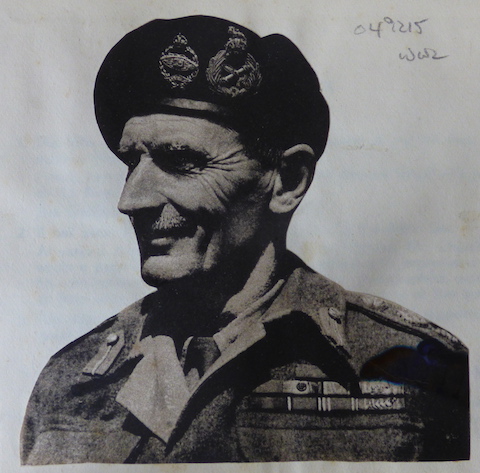
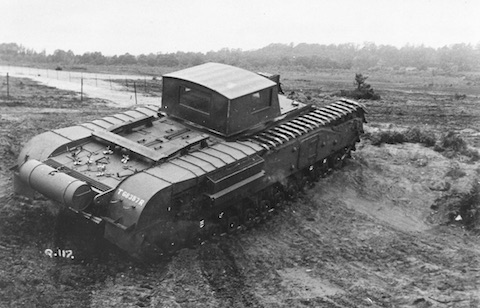
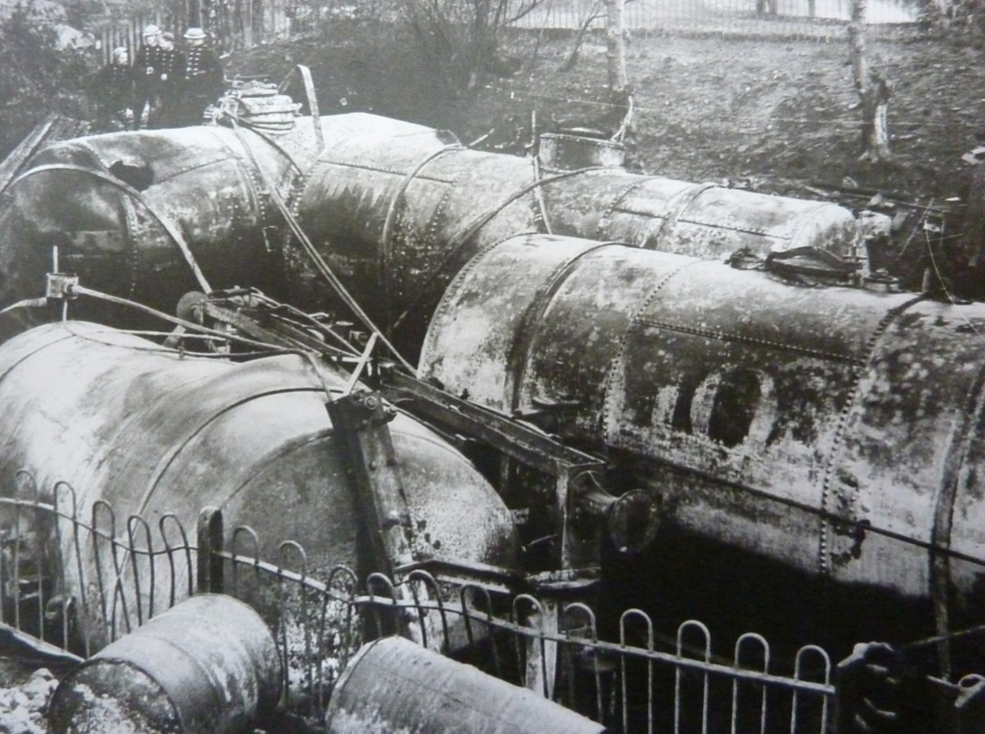
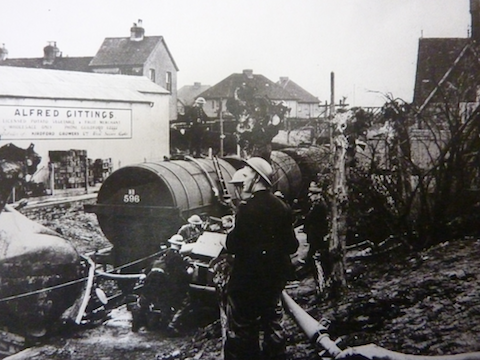
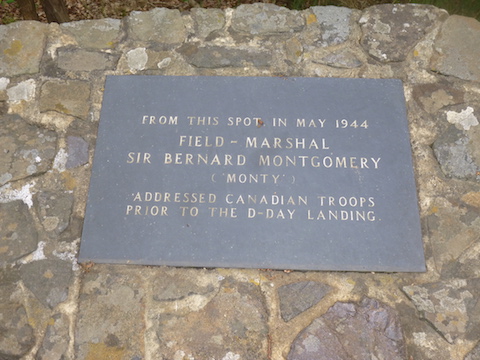
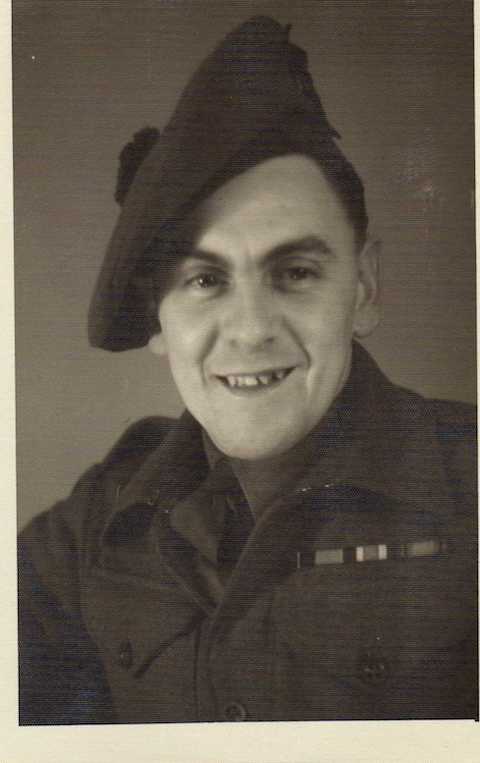







Gina Redpath
June 7, 2019 at 11:40 am
What a fabulous article,
Thank you Dragon